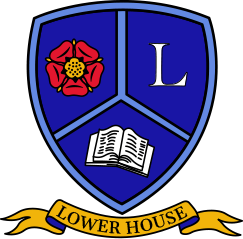English - Reading
At Lowerhouse Junior School, we believe that reading is an essential life skill, and we are committed to enabling our children to become passionate, lifelong readers.
At the core of our reading strategy is our drive to foster a love of reading. Reading areas throughout the school encourage our children to read a good book and immerse themselves in quality texts.
Intent
At Lowerhouse Junior School, we believe that the teaching of reading is integral to a child’s understanding and appreciation of the world around them; a platform that allows our pupils to see beyond what they know, share in cultural experiences and develop the vocabulary they need to express themselves. We believe that all pupils should have the opportunity to be fluent, confident readers who are able to successfully enjoy, comprehend and understand a wide range of texts and vocabulary. We want pupils to develop a love of reading and a good knowledge of a range of authors.
Implementation
Guided group reading is taught throughout the school. There are 5 reading lessons per week, each lasting for 30 minutes. For one session each week, children read their own books for pleasure. During these sessions, children may read to an adult, change their books and develop their own preferences re: book choice. Each class book corner is stocked with texts to engage the children. The other 4 lessons a week are taught using a text which is carefully chosen to be pitched at the level of the children in the group. Teachers plan and assess guided reading sessions using the Learning and Progression Steps (LAPS) Group Reading Grids. Planned across two-three sessions per week (depending on the age of the children), guided reading provides the opportunity for teachers to assess:
i) word reading as the child reads the text aloud, and
ii) comprehension as the teacher leads quality discussion centred around the focus skill(s) identified (see Learning and Progression Steps (LAPS) Group Reading Grids. The Lancashire Reading Domain Prompts are also used to support this assessment.
It is worth noting that guided reading provides one of the few opportunities to regularly hear a child read a text aloud that is appropriately pitched at their level. In doing so, it allows the teacher to formatively assess the child’s reading accuracy (reading words correctly), automaticity (reading without undue hesitation or the need to ‘sound out’ every word) and prosody (reading with appropriate stress, pauses and intonation). Combined, accuracy, automaticity and prosody, make up reading fluency – being able to read with, and for meaning.
Achievement will be measured through learning walks, pupil voice interviews and the outcomes of reading assessments.
-We prioritise the assessment of reading. Pupils' home reading is monitored each half-term to assess their reading level, ensuring that pupils are reading the most appropriate books. Pupils identified as needing additional support with their reading will be listened to regularly throughout the week. This is to support them in meeting the expected standard in reading.
-We know that reading for pleasure is beneficial not only for reading outcomes, but for wider learning enjoyment and mental wellbeing. Therefore, we work hard to foster a love of independent reading. To support this, our library is regularly updated with books, and time slots are timetabled, as well as our “Library Club” which is run by our Librarian during lunchtimes.
-We understand the significance of parents and carers in supporting their pupils to develop both word reading and comprehension skills, so we endeavour to build a home-school partnership which enables parents and carers to have the confidence to support their pupils with reading at home.
Impact
By the time pupils leave Lowerhouse Junior School, we aspire that all pupils are fluent, confident and enthusiastic readers, who can recommend books to their peers, access a range of texts for pleasure and enjoyments, as well as use their reading skills to unlock learning in all areas of the curriculum. They have a thirst for knowledge, can read a wide range of genres and confidently participate in discussions about what they have read. They can also read books to enhance their knowledge and understanding of all subjects on the curriculum, and communicate their research to a wider audience.
